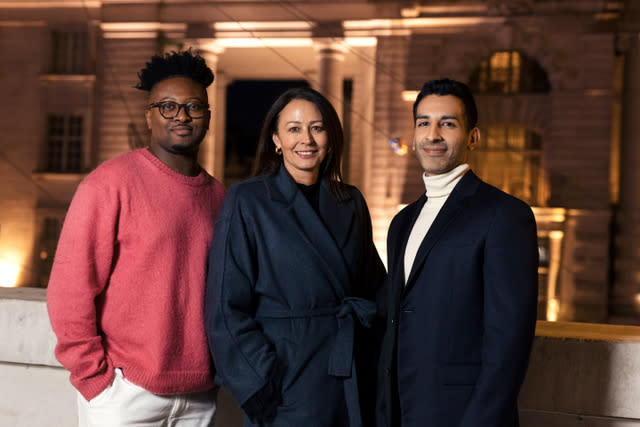BFC Publishes Inaugural Diversity, Equity and Inclusion Report

LONDON — The U.K. fashion industry’s first diversity, equity and inclusion, or EDI, report will be published on Tuesday.
Coauthored by the British Fashion Council, the Outsiders Perspective, the (Fashion) Minority Report and McKinsey & Co., the report presents data findings from an industry-wide survey, 11 leadership interviews with the likes of Yoox Net-a-porter’s ad interim chief executive officer Alison Loehnis and Jimmy Choo’s chief executive officer Hannah Colman, and a study of more than 70 U.K. fashion companies, alongside three strategic levers to make progress for immediate and long-term effect.
More from WWD
Edward Enninful to Receive the Trailblazer Award at Fashion Awards
British Fashion Industry Launches Circular Innovation Network
Amesh Wijesekera Wins Circular Design Challenge's U.K. Prize
The report revealed that despite a positive shift in fashion’s public-facing persona, the situation is starkly different when it comes to the industry’s internal workforce, especially at the higher level.
Only 9 percent of executives and boards in the U.K. fashion industry are held by people of color, and 39 percent by women, the report showed. At the same time, 86 percent of white men in the industry believe the industry is diverse, while 46 percent of women of color hold the same view.
The report also argued that there is a link between DEI and financial performance. It said diverse businesses are 39 percent more likely to outperform financially. Some 35 percent of these companies’ executive teams and boards are people of color, and half are women.
The report suggests that by adopting a different approach to recruiting and retaining talent, U.K. businesses can create a positive social impact and unlock significant economic opportunity.
With goals set within a five-year timeframe, the report said the U.K. fashion sector is aiming to achieve representation of 25 percent people of color, 50 percent female, and representation from within the LGBTQIA+ and disabled communities at the executive and board levels.

“Our catwalks are diverse, our campaigns are diverse, and our consumers are diverse, but our workforce and our decision-makers are not. There is a solid business case for a diverse team, which is arguably most relevant for fashion. We, as an industry, should be leading the charge — because we have the most to gain,” said Jamie Gill, founder of the Outsiders Perspective, a fashion career coaching program for people from minority backgrounds.
Caroline Rush, chief executive of the British Fashion Council, added “We must recognize that there is a key business opportunity in dismantling barriers, fostering inclusivity, and ensuring we are truly listening to and amplifying underrepresented voices. The report makes it clear that there are undeniable benefits of having a diverse workforce. This is a wake-up call for all of us – we as an industry need to embrace DEI as a lever for advantage.”
“Our hope is that this report will support our collective DEI journey to create an inclusive U.K. fashion industry reflective of society and the evolving consumer. We are committed to returning to this piece of research in two years to measure progress,” she added.
Best of WWD
